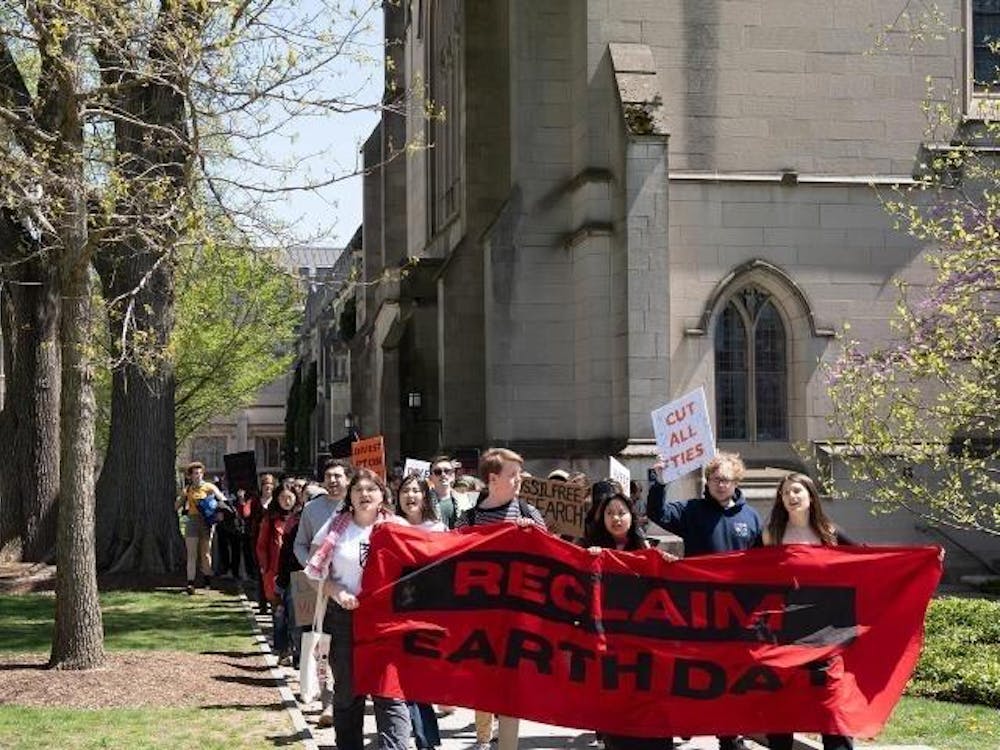In light of this speculation, Michael Goldfarb ’02 argued in a blog post last week for The Weekly Standard that it is important to closely examine Kagan’s undergraduate thesis on socialist movements in early 20th-century New York, saying it indicates political attitudes “sympathetic to the socialists.”
Several people here at the University who knew her as an undergraduate, however, said Kagan is not a political radical.
“She’s been called a left-wing crazy for what she wrote under my direction,” said history professor Sean Wilentz, who was Kagan’s thesis adviser. “I gather that [the] publicists … of the conservatives are trying to raise all kinds of bogeymen around her. That is a mark of how formidable a candidate she would be.”
Calling her “the opposite of an ideologue,” Wilentz added that he thinks Kagan would be a “very pragmatic liberal” voice if nominated to the Supreme Court.
“There’s nothing dogmatic about her approach,” said Steven Bernstein ’81, who worked with Kagan at The Daily Princetonian, where she served as the editorial chairman of the 104th Managing Board. He noted especially that “[Kagan’s] views on presidential power and executive power were sometime more in line with Republicans.”
Marc Fisher ’80, one of Kagan’s classmates at the University and someone who also knew her from her days at Hunter College High School in New York, also emphasized Kagan’s moderate approach during her college years to social issues like apartheid in South Africa.
“She was not the kind of person who would get involved in [anti-apartheid] protests [at Princeton],” Fisher said. “She could step back and observe. She was not one of the people who would bang on doors and hold sit-ins.”
Fisher and other classmates also said Kagan was a thoughtful and studious undergraduate during her years at the University.
“[Kagan] was very deliberate in her thought process — extremely focused and balanced in her judgments,” Jason Brown ’81 said. “A lot of college kids would start with the conclusion and then look for the facts to back it up. I didn’t have that sense with Elena.”
Fisher echoed Brown’s sentiment, saying, “She has always been a very devoted and serious student and someone who’s always had a purpose about her.”
In the fall of her senior year, Kagan was awarded the Daniel M. Sachs Class of 1960 Graduating Scholarship and subsequently pursued a master of philosophy at Oxford University before going on to Harvard Law School. After working on Michael Dukakis’ 1988 presidential campaign and spending a few years in the corporate sector, Kagan started teaching at the University of Chicago in 1991. Four years later, she left to work as a domestic-policy adviser in the Clinton administration.
In 2003, Kagan was appointed dean of Harvard Law School, a position she held until becoming solicitor general earlier this year.

During her tenure at Harvard, Kagan helped unify an institution known at the time for being fractious, Wilentz said.
“[Kagan] came in and really turned the place around,” Wilentz said, adding that she was a collegial and inspiring dean and, if nominated and confirmed, would add “esprit de corps” to the Supreme Court.
During her time as the editorial chairman at the ‘Prince,’ Kagan learned to bring people to agree while discussing contentious issues, former ‘Prince’ editorial editor David Hardison ’81 said. “She was excellent at convincing others as to the merits of her arguments and knowing how to forge a consensus when necessary,” he explained, noting that under the editorial system in place at the time, Kagan had to persuade a majority of the members on the managing board of the ‘Prince’ to approve every editorial.
The first-ever female U.S. solicitor general, Kagan would be only the third woman to serve on the Supreme Court if she is nominated and confirmed. There has been widespread speculation that President Obama will nominate a woman to replace Souter, and both Kagan and Sonia Sotomayor ’76 have been rumored to be strong contenders.
Wilentz, however, said he thinks Kagan’s legal expertise and interpersonal skills — not her gender — are her strongest qualifications for the seat.
“I imagine she’ll be on any Democratic president’s short list without regard to race, color and gender,” he said. “She’s not the best woman candidate. She’s the best candidate.”








